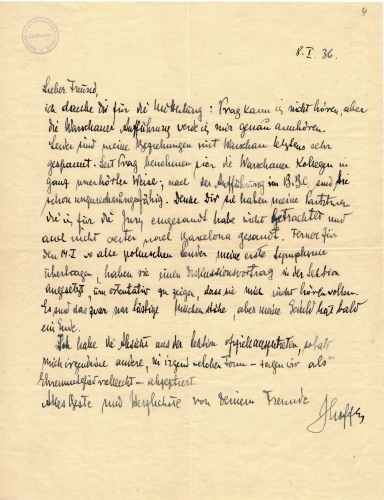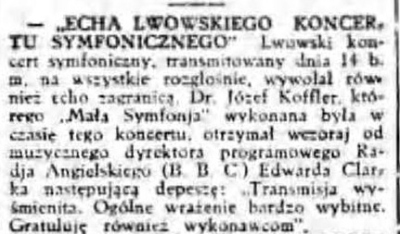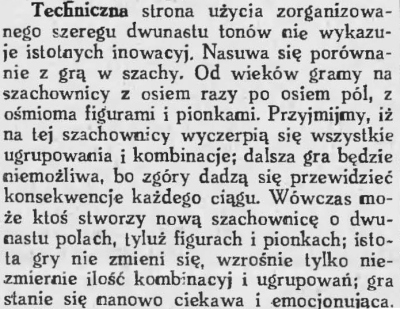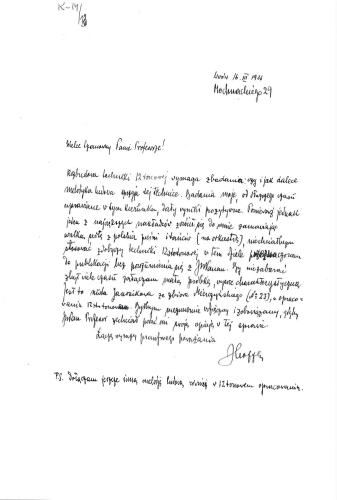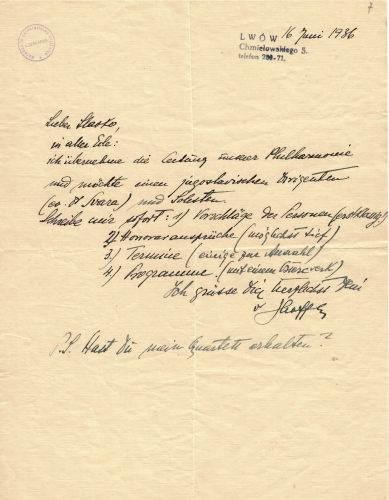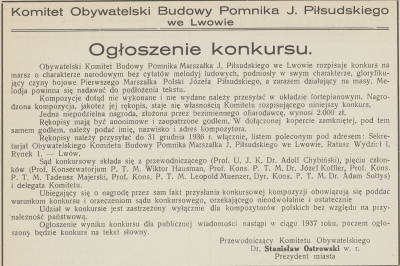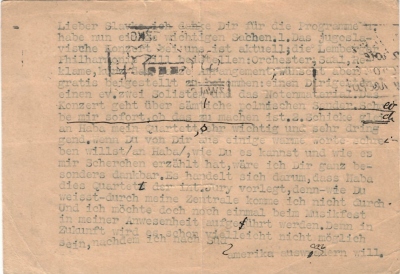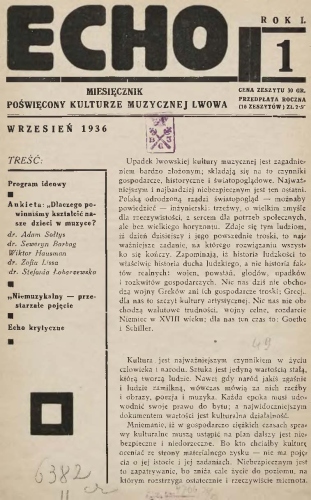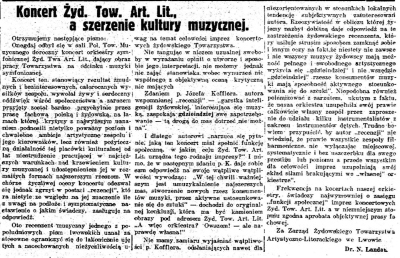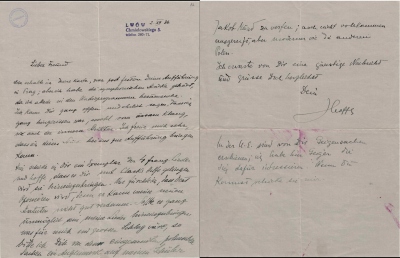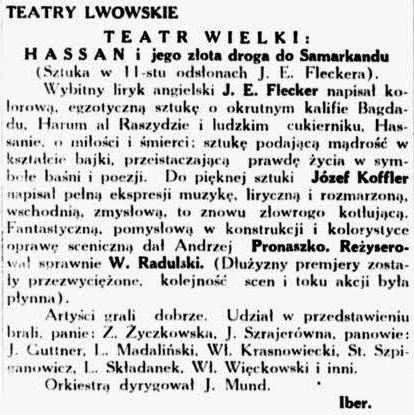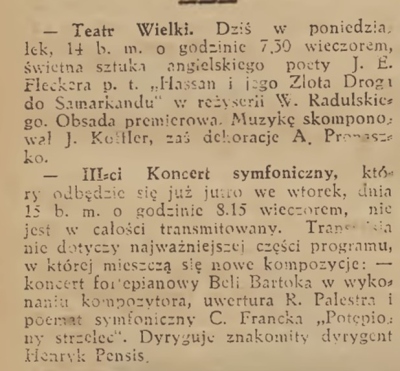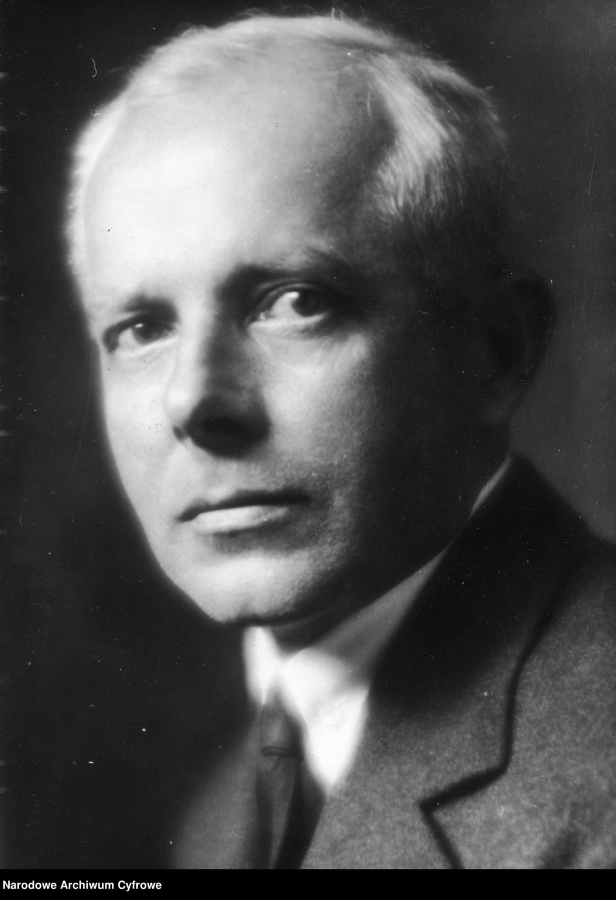
Following the unexpected death of Alban Berg, Koffler published a tribute in Orkiestra (No. 1):
The musical world laments the prematurely departed creative talent who could have led contemporary music on ever new tracks. I have lost a great, noble, and supportive friend.
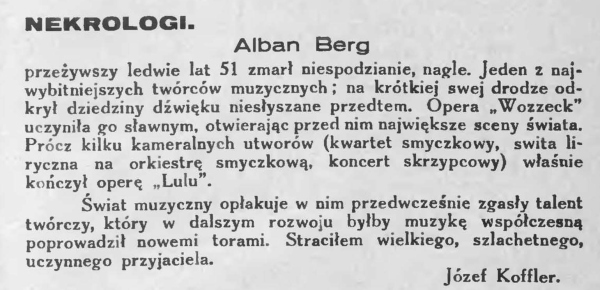
In a letter to Slavko Osterc, Koffler complains about the relations in the Polish section:
Unfortunately, my relations with Warsaw have recently become very tense. Since Prague, my colleagues in Warsaw have behaved scandalously, and after the BBC performance they have become totally unpredictable. I don’t think they did as much as look through the score I submitted to the jury, or forwarded it to Barcelona. What is more, they scheduled the section’s lecture and debate for 14 January, when all the Polish stations will be broadcasting my first symphony, in order ostentatiously to demonstrate that they do not wish to hear my music.
He admits that he plans officially to leave the national section as long as he is offered the membership of another one.
The press reports on the success of the performance and radio broadcast of Koffler’s Little Symphony [Symphony No. 1], which took place on 14 January. BBC programme director Edward Clark sends the composer a congratulatory telegram.
Wiadomości Literackie cultural weekly (No. 10) prints Koffler’s paper titled Twelve Tones, which explains the essence and principles of twelve-note technique as follows:
In technical terms, the use of an ordered twelve-note row is not a major innovation. Comparison with the game of chess comes to mind. We have for ages played the game on a chessboard of eight times eight squares, using eight pawns and eight other chess pieces. Let us assume that all the possible groupings and combinations on the chessboard have been exhausted, which makes further playing impossible since the consequences of each sequence can be predicted. It is possible that in such a case someone will invent a chessboard with twelve rows, twelve pawns and twelve other pieces. The essence of the game will not fundamentally change. Only the number of groupings and combinations will grow immensely, which will restore interest and emotions to the game.
In an exchange of letters on the relation between twelve-note technique and folk melodic patterns with Adolf Chybiński, Koffler refers to a commission for ‘a suite of Polish songs and dances’, which he received from ‘one of the largest publishers’. He sends Chybiński ‘samples’ in the form of a twelve-note arrangement of ‘the Janosik tune from Mierczyński’s collection (No. 23)’ and of yet another folksong, with a request for advice.
In a letter to Slavko Osterc, Koffler informs that he is taking over as director of Lwów Philharmonic and asks for recommendations concerning a Yugoslav conductor and soloists, as well as information on available concert programmes, dates, and expected fees.
Józef and Róża Koffler’s only child Alban is born in Lwów.
August
Koffler serves on the jury of a competition for ‘a march of national character’, organised by the Citizens’ Committee for the Erection of a Monument to Marshal Józef Piłsudski. The march is to ‘contain no folk tune quotations, be solemn in character, and extol the military exploits of Poland’s first Marshal, Józef Piłsudski’. Adolf Chybiński is chair of the jury.
Koffler undertakes to hold a concert of Yugoslav music at Lwów Philharmonic. He informs Slavko Osterc about it in a postcard. He asks Osterc to pass the score of his Streichquartett on to Alois Hába ‘so that Hába may present the quartet to an international jury since, as you know, I cannot come to an agreement with my headquarters.’ He also informs about his plans to emigrate to South America.
The first issue of Echo, ‘a monthly dedicated to the musical culture of Lwów’ is published. Koffler becomes its editor in chief. The inaugural editorial explains:
Echo sets itself the task of educating true and conscious music lovers, who exhibit an active attitude to that art; of building and reinforcing [in them] a sense and awareness of quality; of instilling and consolidating in musical awareness a respect for the elusive and irrational foundations of every music work; of reviving the sense of the uniqueness and festive character of all music, its purifying and liberating properties. We will combat all harmful influences, regardless of the source. We will scrutinise the work of those bodies whose duties include musical culture, particularly the daily press and periodicals. We will dedicate much attention to music on the radio and in talking films […]
Koffler publishes a critical text on the work of the Jewish Artistic and Literary Society, in which he puts into question the usefulness of maintaining a Jewish Symphony Orchestra in Lwów. Koffler’s view is sharply opposed in the Chwila daily by Dr Naftali Landau.
Koffler writes a letter to Osterc, who (along with Roberto Gerhard, Jacques Ibert, Edward Clark, and Gunnar Jeanson) serves on the jury selecting works for the ISCM festival in Paris:
Below please find enclosed a copy of 4 French Songs, which, I hope, you will be able to include [in the programme] with Clark’s assistance. I’m only afraid that Dent will oppose [their performance] since he can’t bear my new ‘Statute’. Should it prove impossible to include my songs (which would be a heavy blow to me) please turn your attention, among the submitted Polish pieces, to [those by] my pupil Jakub Mund. He has not yet fully developed, but he is more modern than the other Poles.
A production of James Elroy Flecker’s Hassan directed by Wacław Radulski is premiered at Lwów’s Grand Theatre with music by Koffler, sets by Andrzej Pronaszko, and under the music direction of Jakub Mund.
Koffler meets Béla Bartók in Lwów. The latter performs twice in that city, first at the Grand Theatre, then – at Lwów Radio. Several months earlier, Koffler wrote twice to Bartók on behalf of the directors of both institutions, discussing the organisation, costs, and programme of both concerts.

